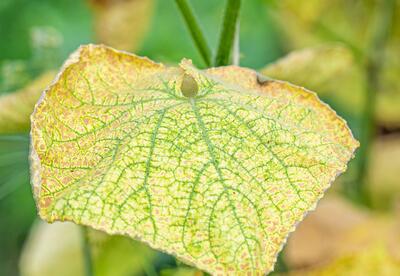
Figure 1: AmpliFire® portable fluorometer
--- FOR IMMEDIATE RELEASE ---
Agdia, Inc. (Elkhart, IN) has commercialized a rapid and user-friendly, RNA-based assay, on their AmplifyRP® XRT platform, for the detection of Potato mop-top virus (PMTV).
Potato mop-top virus is the type member of the Pomovirus genus and is considered a growing threat to potato production in North America; this virus can cause significant crop losses in susceptible varieties. The symptoms of mop-top disease on potato were first observed in the UK in 1966. Thereafter, PMTV was soon discovered throughout mainland Europe, several Asian countries and South America. First reports of PMTV infections in Canada and the U.S are from the early 1990’s and 2002, respectively. The virus is now widespread throughout potato production regions worldwide. The host range for PMTV is narrow, with potato being affected most significantly. Nevertheless, this virus can infect additional members of Solanaceae and Chenopodiaceae.
Potato mop-top virus is vectored locally by the protozoan Spongospora subterranea f.sp. subterranea, the causal agent of powdery scab on potato. While PMTV is a relatively new and emerging pathogen on potato, S. subterranea f.sp. subterranea and powdery scab have been known to science since the middle of the 19th century. This organism is present in soils worldwide, but its presence does not necessarily signal the presence of PMTV. Symptoms of powdery scab include dry scabby lesions that form on the tuber surface, reducing marketability.
These lesions burst and release spore balls known as sporosori. The sporosori are resting spores that can persist in the soil for up to 18 years without a host. Moreover, these spores can contain PMTV virions for that time, which are transferred to plant cells at the onset of subsequent powdery scab infections. Soils can be infested with S. subterranea f.sp. subterranea without the occurrence of powdery scab; specific environmental conditions must occur for pathogenesis, including cool, wet weather. Moreover, powdery scab infections can occur without incidence of PMTV infections. Separately, these two pathogens are problematic, whereas their collective presence in a field is potentially catastrophic.
Symptoms of PMTV infections on potato foliage vary according to variety and will only appear if the seed is infected pre-planting. Foliar symptoms include blotchy discoloration, chlorotic chevron patterns and deformation. Some varieties exhibit shortened internodes, producing the characteristic mop-top appearance. The tuber symptomology of PMTV infection is referred to as spraing and includes corky, necrotic arcs, rings or flecks that form on and within the flesh of the tubers. These symptoms can be mistaken for those caused by Tobacco rattle virus (TRV, Tobravirus), the causal agent of corky ringspot disease. Spraing is potentially devastating to potato production as symptomology can reduce marketability and render seed tubers unusable.
There is no highly effective field control for PMTV or its vector. Crop rotation has resulted in localized decline in vector populations. Nevertheless, the persistent nature of the resting spores dictates long-term rotations away from potato production in infested fields. Varietal resistance to PMTV infections and powdery scab is variable, however, no varieties possess immunity to either pathogen. This makes tuber certification and sanitation paramount to virus management. It is important that seed tubers come from production fields with no history of PMTV infections or powdery scab. Moreover, as PMTV incidence increases, diagnostic testing for presence of PMTV in certified seed will become more widespread.
Agdia’s new AmplifyRP® XRT assay for PMTV detection is based on recombinase polymerase amplification (RPA). This technology promotes the rapid amplification and detection of nucleic acid targets, DNA or RNA, while maintaining a single operating temperature of 39 – 42 oC. The AmplifyRP® XRT products achieve target sensitivity and specificity comparable to PCR, while having clear advantages over the lab-based technology. AmplifyRP® XRT products do not require a nucleic acid purification step; crude sample extracts are prepared using a simple extraction buffer and tested directly. This makes the testing process simple and saves the end-user valuable time. When paired with Agdia’s AmpliFire® isothermal fluorometer, the XRT system is a rapid, user-friendly tool that can be implemented in the field or the lab by personnel with limited experience in molecular diagnostics (Figure 1.).
Agdia states their new assay was screened against multiple isolates of PMTV, detecting all true positives. Moreover, exclusivity panels exhibited no cross reactivity with several common viral pathogens in potato, including Andean potato latent virus, Potato aucuba mosaic virus, Potato leafroll virus, Potato virus A, T, V, X, Y, Tobacco rattle virus and Tomato spotted wilt virus. Agdia states this assay exhibited sensitivity comparable to that observed with the two published qPCR assays Agdia evaluated during validation. Moreover, this assay exhibited increased sensitivity relative to the published conventional PCR assay tested. This assay contains an endogenous internal control and was developed to test leaf tissue and tuber cores. For more information on Agdia’s complete line of AmplifyRP® assays, please visit Agdia’s website.
About Agdia
A leading provider of diagnostic solutions for agriculture, Agdia, Inc. has been serving plant breeders, propagators, growers, universities, regulatory organizations and private testing laboratories since 1981. The company offers a comprehensive portfolio of validated, easy-to-use diagnostics for identifying plant pathogens, plant hormones, and transgenic traits. Moreover, Agdia operates an ISO accredited, in-house, testing services laboratory. Agdia’s quality management system is ISO 9001:2015 certified and their Testing Services Laboratory is ISO 17025:2017 accredited. Visit the company’s website at www.agdia.com, e-mail info@agdia.com, phone 1-574-264-2615 (toll-free 800-622-4342) or fax 1-574-264-2153.
###





